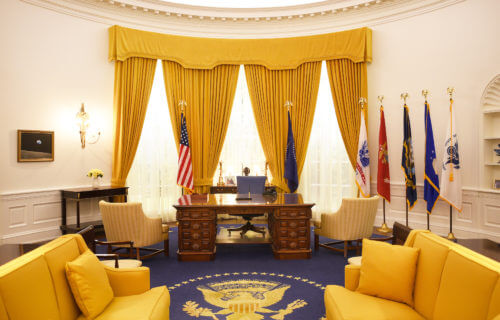COLUMBUS, Ohio — How does a leader’s personality play into their ability to lead a nation during military operations? New research out of The Ohio State University concludes that U.S. presidents with high levels of narcissism tend to govern during prolonged wars, and often put their own selfish interests above the needs of the state.
The study connects several U.S. presidents’ narcissistic traits to periods of lengthy wars, aggravated allies and an inability to admit mistakes. The research analyzed 19 presidents between 1897 and 2009. Eight former commanders-in-chief scored above-average in terms of narcissistic characteristics, and that same group of ex-presidents also spent far more time at war while they were in office.
Which U.S. presidents were most narcissistic?
Presidents who scored the highest on narcissism, including Lyndon Johnson, Franklin Delano Roosevelt and Richard Nixon, “had difficulty separating their own needs from state interests and were involved in lengthy wars,” says lead study author John P. Harden in a statement. His research concludes that Johnson had the highest score among presidents.
Narcissistic presidents spent an average of 613 days at war, the study shows. By contrast, the other eleven U.S. leaders with below-average narcissism scores spent an average of only 136 days at war. Johnson’s administration was ultimately worn down from its role in the Vietnam War.
On the other side of the narcissism spectrum, William McKinley (1897-1901 assassination), Howard Taft (1909-1913), Calvin Coolidge (1923-1929) and Dwight D. Eisenhower (1953-1961) “separated their personal interests from state interests, saw war as a last resort and pursued speedy exits,” notes Harden.
“More narcissistic presidents tend to only exit wars if they can say they won, and they will extend wars to find a way to declare some kind of victory,” Harden adds. “They want to look heroic and strong and competent – even if it means fighting the war beyond what is reasonable.”
Former presidents Teddy Roosevelt and Nixon also scored among the highest in terms of self-interested actions and aggressive over-confidence. These narcissistic traits, the researchers say, is a major factor in why wars are longer with them atop the government.
Narcissistic presidents avoid rationale when making wartime decisions’
Harden built on previous research from 2000 which compared ex-presidents’ personality traits to their decision-making in the Oval Office. He acknowledges that numerous other factors come into play, including whether a president inherited a war or if they previously served in the military themselves.
But Harden notes that the more narcissistic presidents are still tied to longer wars regardless of those non-personality conflict factors. “Presidents don’t always look rationally at the evidence to make their wartime decisions,” he says. “Many presidents have done that, but others are more interested in their own self-interest than the interest of the state.”
Harden suggests that traditional political science perspectives often overlook the important gap between a respective president’s sense of duty toward the state and their own self-interest. Narcissistic presidents have overseen longer wars because of their more grandiose military aims and an inability to make rational wartime decisions.
America’s longest battle, the War in Afghanistan from 2001 to 2021, was overseen by three separate presidential administrations. But only one of them, former President George W. Bush, was analyzed for this study. The personality traits used to score the presidents’ narcissism included high levels of assertiveness, excitement-seeking behavior and low levels of modesty.
The study is published in the Journal of Conflict Resolution.
https://youtu.be/v6kh1bhABQs
